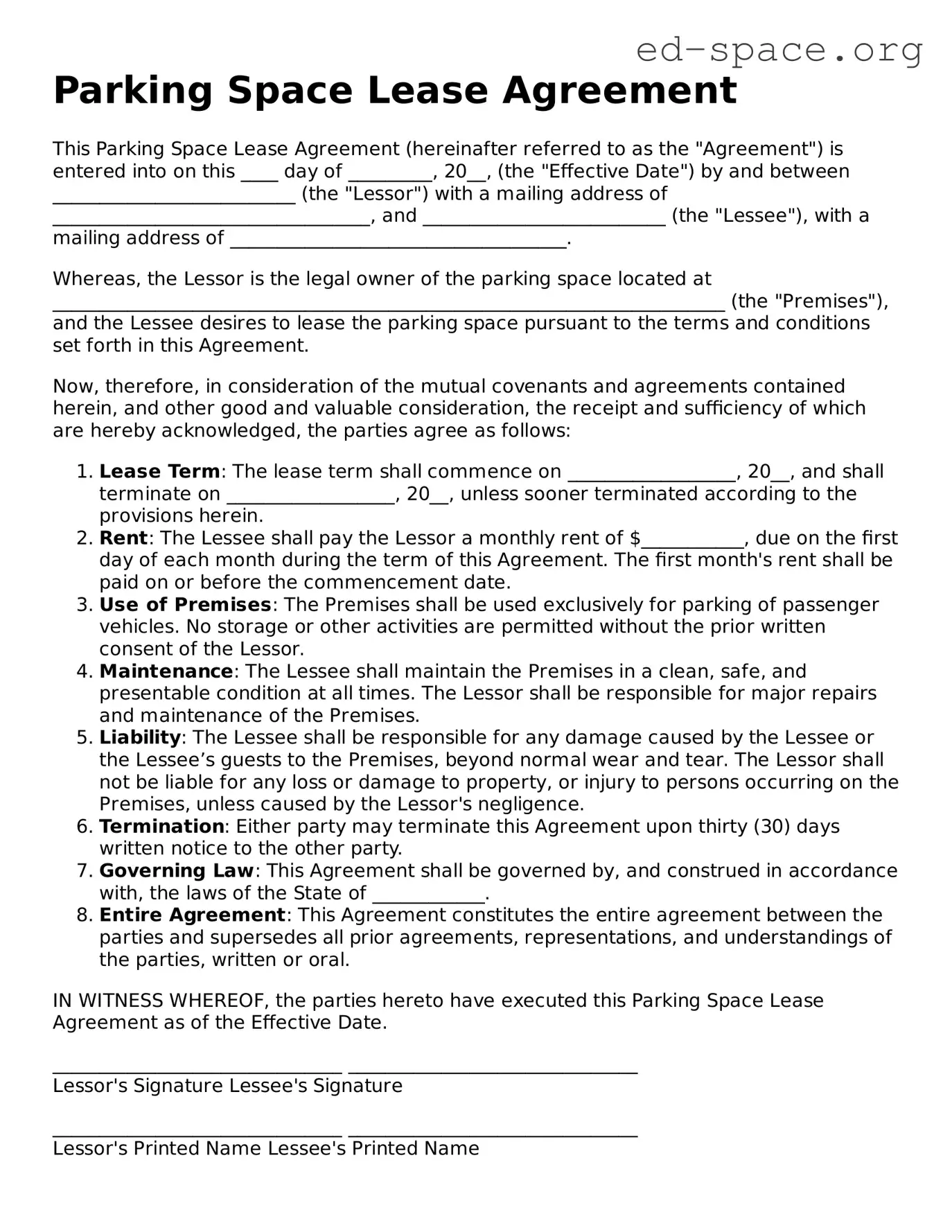What is a Parking Space Lease Agreement?
A Parking Space Lease Agreement is a legally binding document between a property owner and an individual looking to rent a parking space. This agreement outlines the terms and conditions of the rental, including monthly fees, the location of the parking space, and the duration of the lease. It's designed to protect both parties' interests by clarifying expectations and responsibilities.
Why do I need a Parking Space Lease Agreement?
Having a Parking Space Lease Agreement is important because it ensures that both the landlord and the tenant clearly understand the terms of the rental. This agreement helps avoid misunderstandings or conflicts by detailing the rights and duties of each party. It can cover things like payment procedures, the use of the space, and what happens if the agreement is breached. In short, it provides a legal foundation that can help prevent future disputes.
What should be included in a Parking Space Lease Agreement?
A well-crafted Parking Space Lease Agreement should include information such as the location of the parking space, the term of the rental (start and end dates), the monthly rent amount, and payment due dates. It should also cover terms regarding the termination of the lease, any restrictions on use, maintenance responsibilities, and penalties for late payments or other breaches of the agreement. It's also wise to mention whether the space is designated or if any specific vehicle is required to use it.
Can I customize a Parking Space Lease Agreement for different states?
Yes, a Parking Space Lease Agreement can and often should be customized to comply with state-specific laws and regulations. While the basic components of the agreement may be similar, some states might have unique requirements regarding rental agreements, including those for parking spaces. It's a good idea to consult with a legal professional or utilize state-specific templates to ensure compliance with local laws.
How do I terminate a Parking Space Lease Agreement?
Terminating a Parking Space Lease Agreement usually requires giving notice in accordance with the terms outlined in the agreement. Most agreements will specify the notice period (often 30 days) and the method of delivery (such as written notice). When ending a lease, it's important to follow these stipulated procedures closely to avoid legal complications. In cases where the agreement does not specify termination procedures, referring to local laws will provide guidance.
What happens if there's a dispute regarding the Parking Space Lease Agreement?
If a dispute arises over a Parking Space Lease Agreement, the parties should first attempt to resolve the issue through direct communication. If this approach fails, the agreement may outline specific dispute resolution methods, such as mediation or arbitration. Should these measures not resolve the issue, either party may seek legal intervention. It's advisable to involve a lawyer familiar with property laws in your state to navigate potential disputes efficiently.
